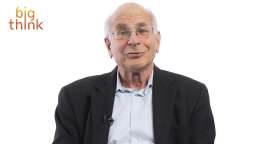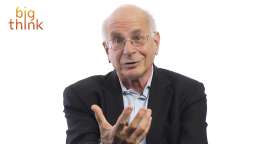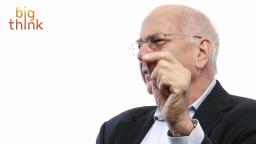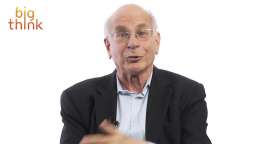Daniel Kahneman
Emeritus Professor of Psychology, Princeton University
Daniel Kahneman is an Israeli-American psychologist and Nobel laureate. He is notable for his work on the psychology of judgment and decision-making, behavioral economics and hedonic psychology. Kahneman’s family escaped from German-occupied France in 1943. His father had previously spent some time in a concentration camp, but was released through some maneuvering by his employers.
With Amos Tversky and others, Kahneman established a cognitive basis for common human errors using heuristics and biases, and developed prospect theory. He was awarded the 2002 Nobel Memorial Prize in Economics for his work in prospect theory.
Currently, he is professor emeritus of psychology and public affairs at Princeton University's Woodrow Wilson School. Kahneman is a founding partner of The Greatest Good, a business and philanthropy consulting company.
With Amos Tversky and others, Kahneman established a cognitive basis for common human errors using heuristics and biases, and developed prospect theory. He was awarded the 2002 Nobel Memorial Prize in Economics for his work in prospect theory.
Currently, he is professor emeritus of psychology and public affairs at Princeton University's Woodrow Wilson School. Kahneman is a founding partner of The Greatest Good, a business and philanthropy consulting company.
Kahneman is the author of Thinking, Fast and Slow, published in 2011.
People take a narrow view of decision making. They look at the problem at hand and they deal with it as if it were the only problem. Very frequently it’s […]
▸
4 min
—
with
I grew up in Europe during [World War II] and so I have a European attitude on the concept of occupation.
If you look at life satisfaction and what makes people satisfied with their lives, most of it has a lot to do with people’s goals.
I hate being angry and so I hate the adversary exchanges that you frequently find in the social sciences and actually in the physical sciences as well where people are snide and they use sarcasm.
A pet peeve that I have in the context of happiness research is that it’s called happiness research.
I think it’s not always right that people should follow their passion. There is a questionnaire that people fill out just before they enter college that has been going on […]
The ego-clashes we tend to excuse among high-achievers are dangerously counterproductive when it comes to advancing human knowledge.
▸
2 min
—
with
In some crucial areas of human cognition, we don’t know and we can’t fully trust ourselves. On the bright side, Daniel Kahneman’s work shows that the kinds of errors we […]
▸
2 min
—
with
Ever wondered what you were thinking after making a bad decision? Daniel Kahneman explains.
▸
4 min
—
with
Confidence is a mark of intuitive thinking regardless of whether intuitive thinking is expert intuitive thinking or heuristic intuitive thinking.
▸
3 min
—
with









